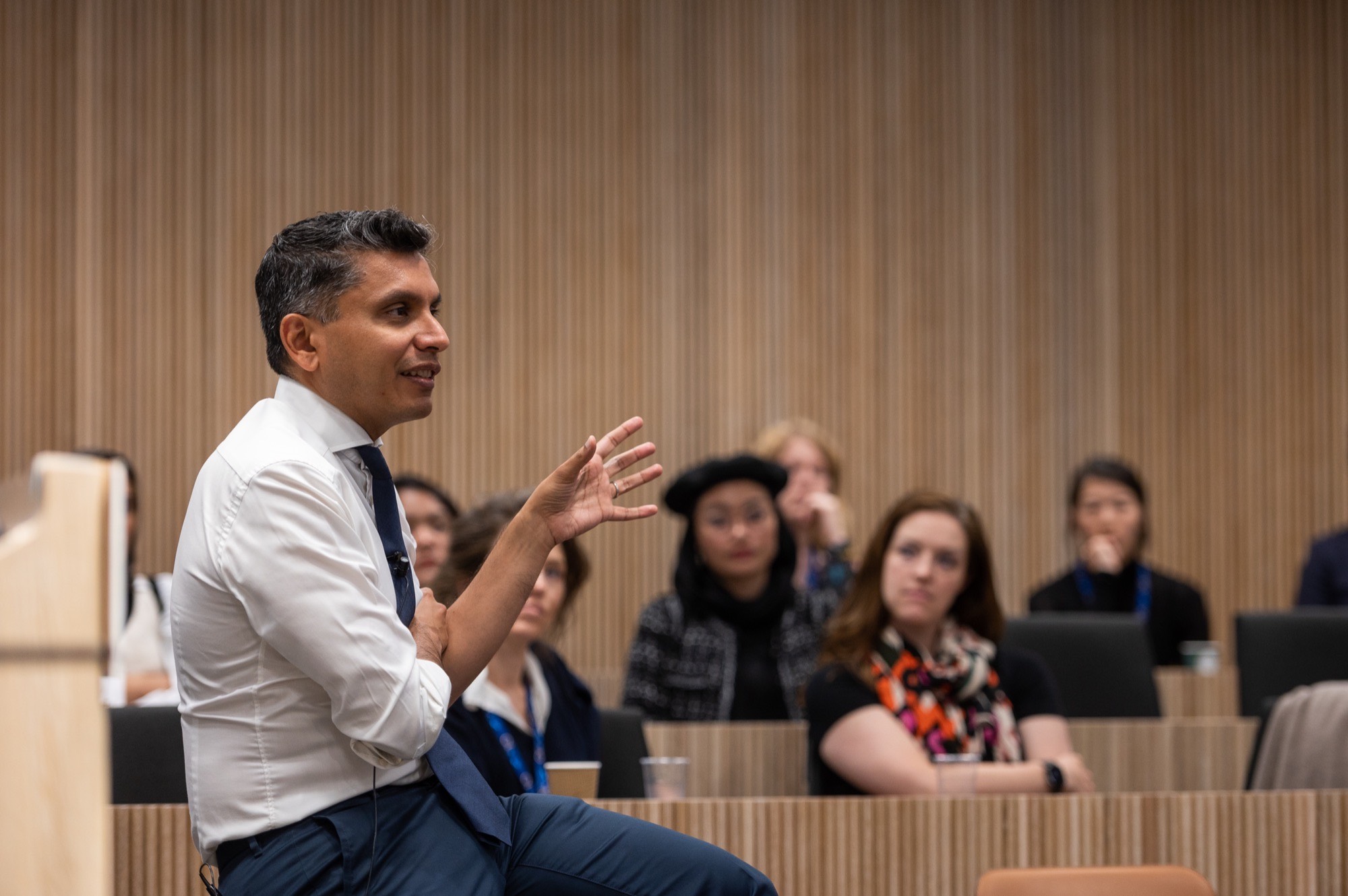Are you navigating tricky teaching moments? We asked MPP Director Karthik Ramanna for his advice
MPP Director Karthik Ramanna shares his tips for managing classroom tensions and encouraging open discussion when teaching sensitive topics.

Several core themes in public policy teaching include potentially sensitive subjects. In what many consider to be increasingly polarised times, it is critical to foster a classroom environment where students can openly and thoughtfully engage with topics — on religion, politics, race, class, or gender, for instance — that cut across their core values.
And while these discussions are vital for students’ holistic professional and personal development, there are also moments when such topics can arise in an unplanned manner and instantly divide the classroom. How can instructors address these difficult moments? When do such moments present a teaching opportunity, and when do they derail learning?
To explore these questions, the Case Centre on Public Leadership sat down with Karthik Ramanna, outgoing Director of the Master in Public Policy (MPP) programme, about his experiences with difficult teaching moments.
What are the types of difficult moments that tend to catch you off guard, even after so many years of teaching and leading case discussions?
“The things that catch me off guard nowadays are different from what caught me off guard as a new teacher. When students say something that might be considered offensive or if they misinterpret core facts, they may not be coming from a place of malice, but it can still shock the rest of the class. As a new teacher, you may not know how to respond in the moment, and you might wonder if you should handle it immediately or just move on. But with experience, you learn what works depending on the context.
“Nowadays, what surprises me most are changing norms of classroom behaviour, particularly since the pandemic. Some students seem to perceive the classroom as a more informal space, like a Zoom room where you can multi-task or eat your breakfast. While this perhaps helps to bring down some of the barriers between instructors and students, it also means students can be, at times, less focused on learning.”
How do you respond when tensions arise in the classroom because someone has said something offensive?
“In that moment, you’re trying to make several decisions at the same time. You need to calibrate your response based on your read of whether this was a genuine miscommunication or an attempt at being provocative. How widespread is the concern in the classroom around the potentially damaging remark? Were there audible gasps? What do you read off people’s faces? These cues can help you determine whether to act in the moment or pick it up outside the classroom.
“If you decide to handle it then and there, you must decide whether to engage directly, or invite other students to engage, or even to turn it back to the student and give them an opportunity to clarify what they said. (But only do the latter if you think the misstatement was genuine and giving the student the floor again won’t make matters worse!) If you decide to engage directly, you must choose whether to do so actively (i.e., head-on) or passively (e.g., via humour). Making these calls requires good judgment that is built with coaching and experience.”
What advice would you give to instructors who are new to the classroom - or new to case teaching - on handling such moments?
“I have five things I try to remember. The first is to count to five silently in your head, so you don’t blurt out what’s immediately on your mind. The second is to always be cognisant of your positional power in the classroom, and to never do anything to abuse it. The third is to be kind, always – you never fully know what battle the individual on the other side of this exchange is facing. The fourth is to not try and solve all problems that come your way; sometimes, you will face challenges you cannot address alone. The fifth is to take time to rebuild your own emotional poise after a difficult interaction, so you do not stay stressed about the situation.”
While instructors may respond differently depending on their reading of the situation, difficult teaching moments have both explicit and implicit implications on classroom dynamics. With a mindset of empathy and openness, public policy instructors can harness sensitive topics to promote meaningful dialogue, critical thinking, and transformative learning.
